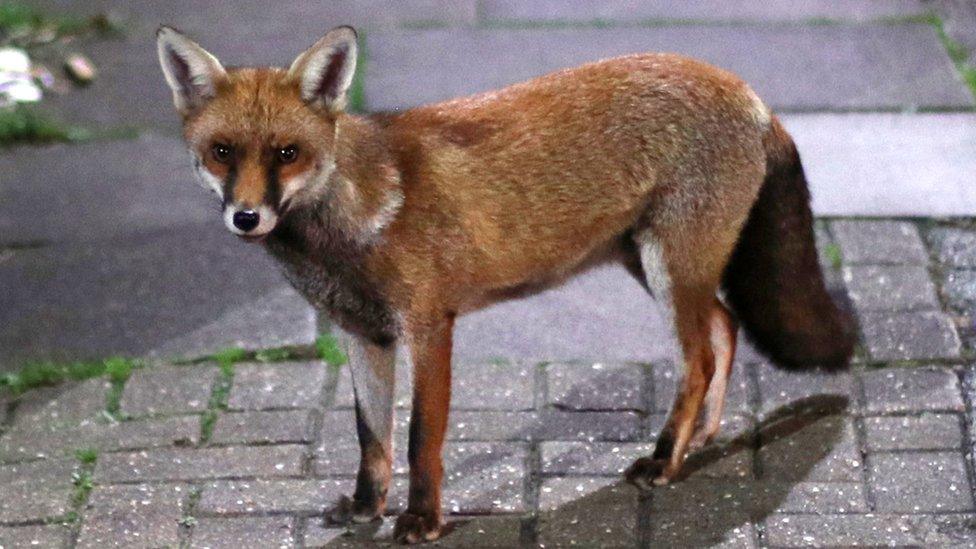'Our cat was mauled by a fox - we nearly lost her'
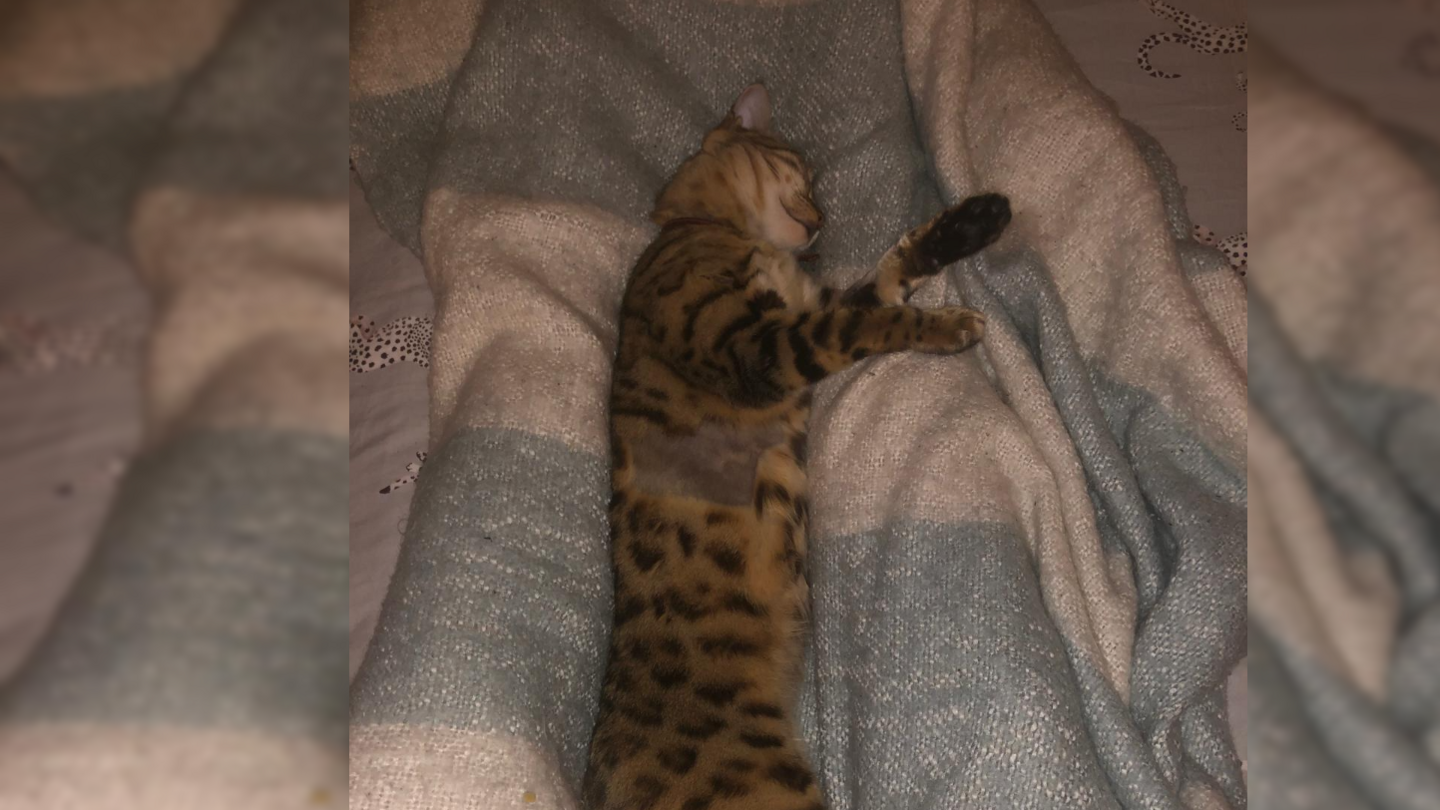
Sula took months to recover
- Published
When Agne Balciunaite and Michael Rose found their cat lying lifelessly on the bed they knew something was wrong.
The couple from Brighton took Sula - a three-year-old Bengal - to the vet, who identified fox bite marks on her belly.
"We almost lost her," said Mr Rose. "She was lucky to be alive."
Sula had fallen into a state of shock and was at risk of heart failure.
According to Cats Protection, fox attacks on cats are "relatively rare, external".
However, the charity said kittens can be targeted as prey "if the opportunity arises".
Ms Balciunaite and Mr Rose believe Sula was attacked because she is small and timid.
Sula, who was bitten in March, took about two months to recover and the couple were handed a £3,500 vet bill.
For weeks after the incident, Ms Balciunaite said a fox would routinely stare through the window at Sula as she recovered.
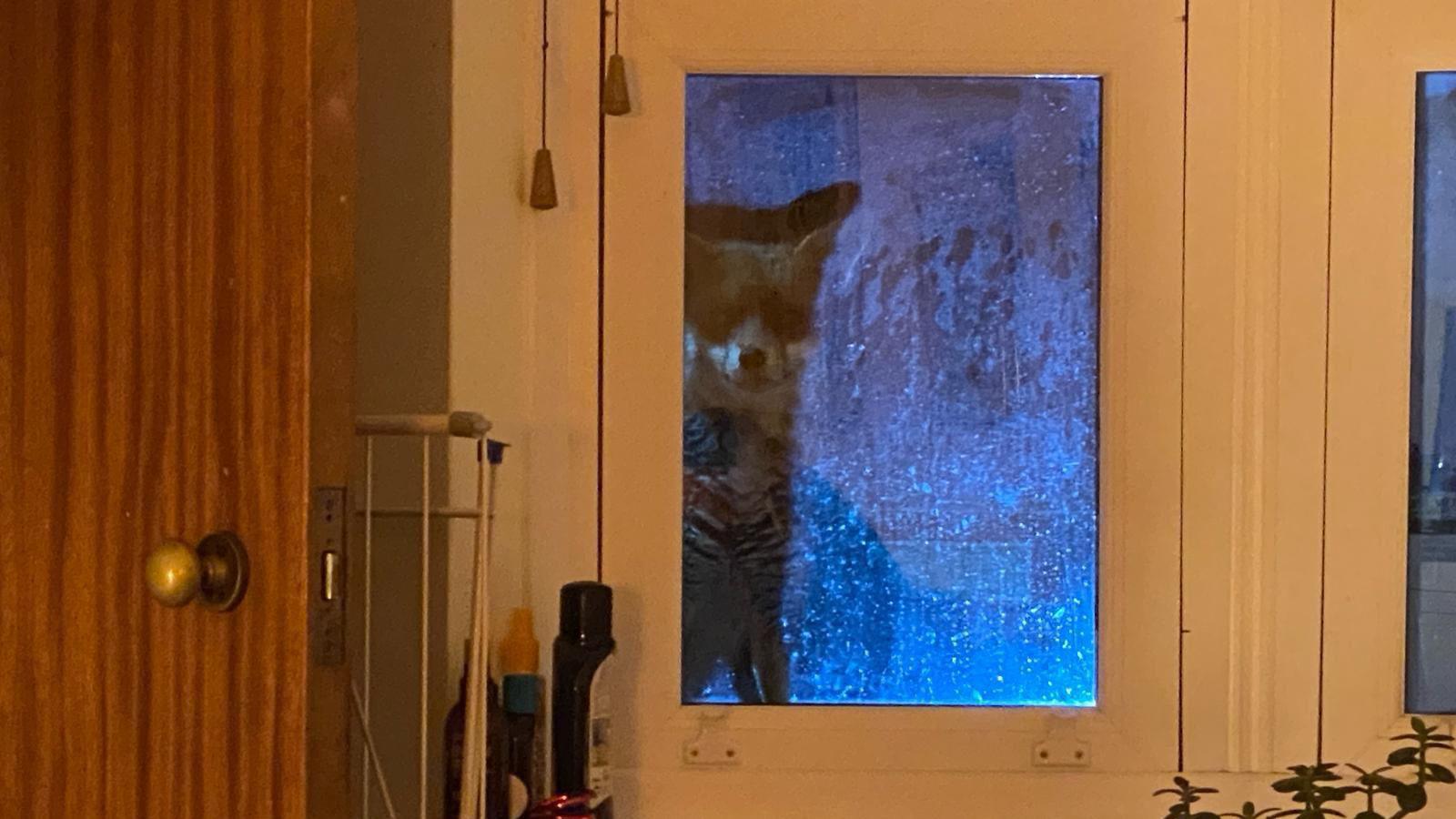
A fox visited regularly their home after the cat was attacked
The BBC has also received reports of foxes chewing car soft-top roofs and generally causing mess in gardens and on the streets.
But fox lovers argue the animals are an important part of a city's biodiversity.
Heidi Aguirregoicoa, from Kent Wildlife Trust, said without foxes hunting rats and mice there would be a "big boom" in rodent populations.
Foxes also spread seeds around towns and cities on their fur, which makes parks and gardens more diverse, she explained.
'They help us connect with nature'
"For people in cities, foxes are the only large wild animals they are able see," Ms Aguirregoicoa said. "They help connect us with nature."
"When you come across a fox and look into its eyes, you get a real sense of the wild that we are so rarely in."
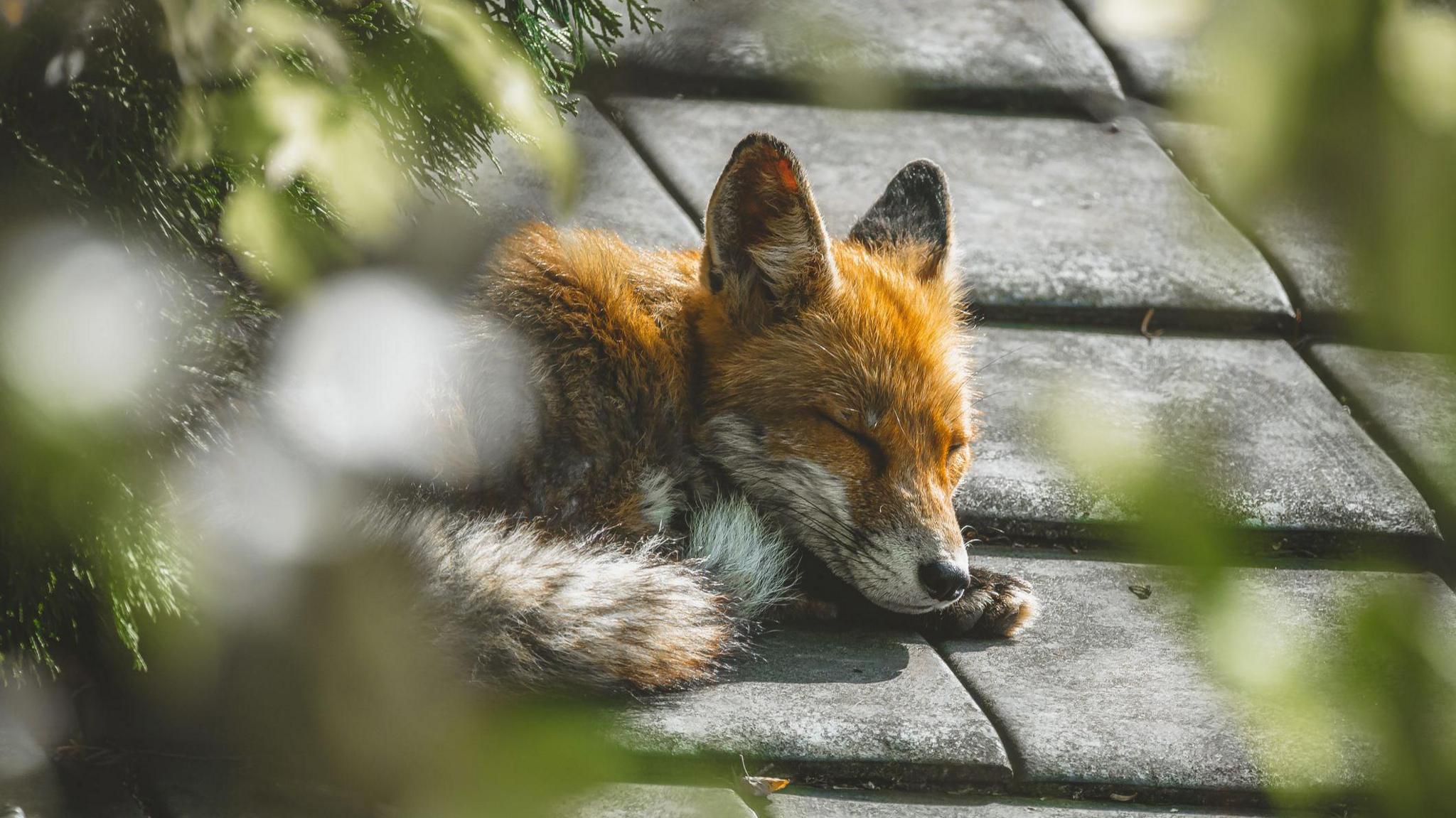
Many people like the sight of urban foxes
Dr Sharmini Paramasivam, associate professor in veterinary behaviour and animal welfare at the University of Surrey, told the BBC that undesirable fox behaviour was driven by humans themselves.
She said people leaving food out, plus poor waste disposal and a lack of urban wildlife planning, were training foxes to go for quick and easy meals and keeping their population artificially high.
"We should be trying to encourage foxes into a more natural way of living," Dr Paramasivam said.
Follow BBC Sussex on Facebook, external, on X, external, and on Instagram, external. Send your story ideas to southeasttoday@bbc.co.uk, external or WhatsApp us on 08081 002250.
Related topics
See also
- Published18 September 2024
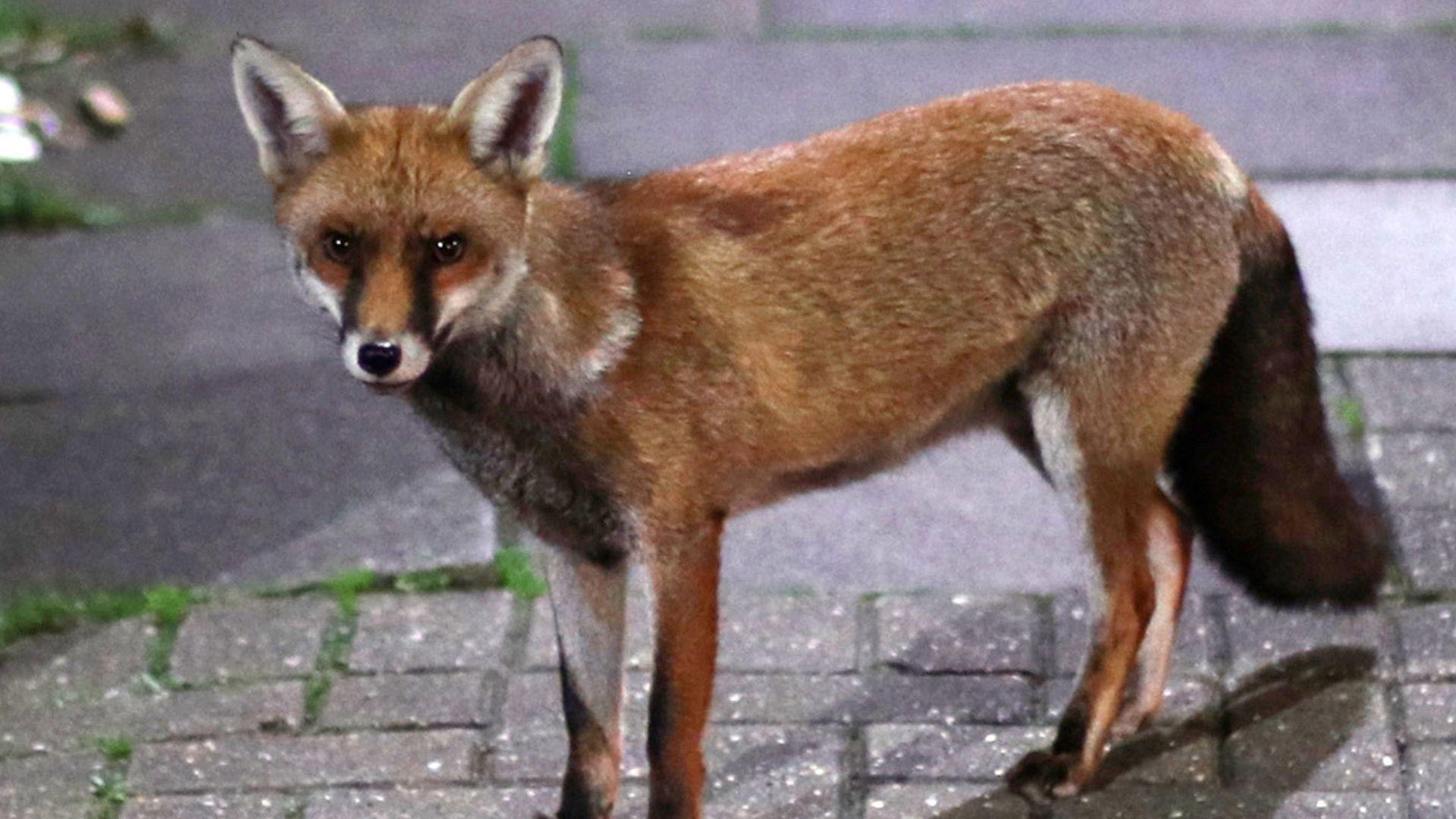
- Published18 September 2024
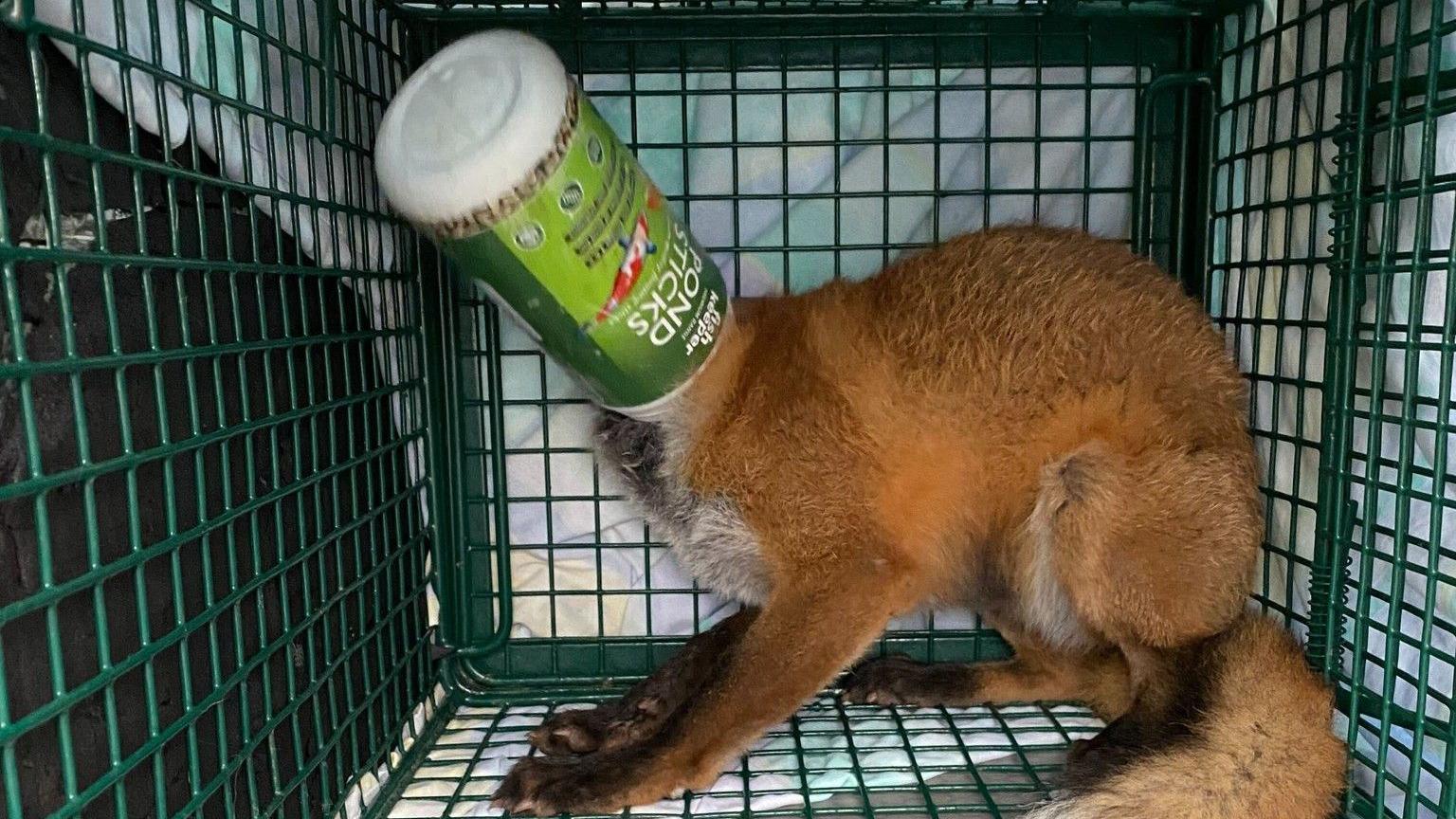
- Published10 March 2024
